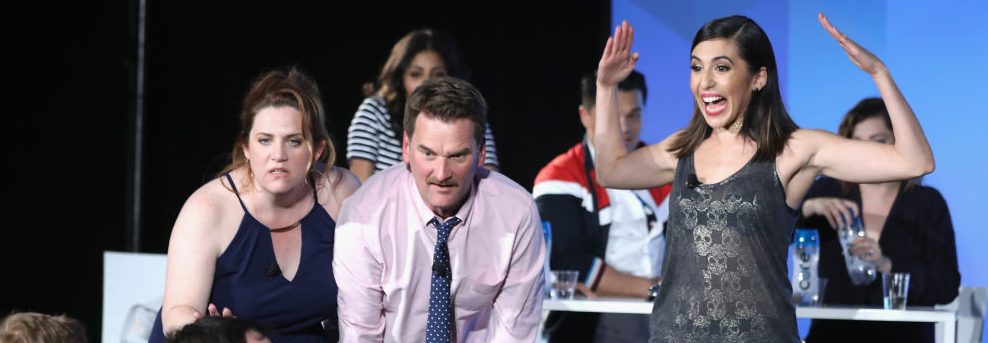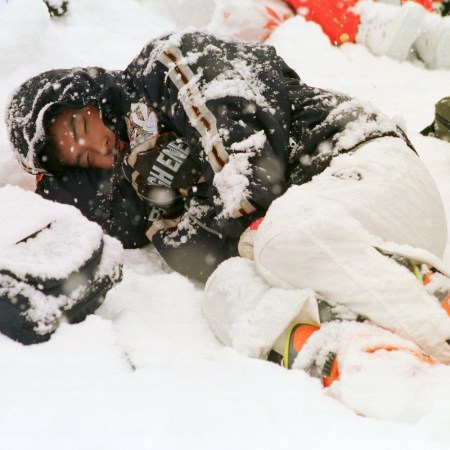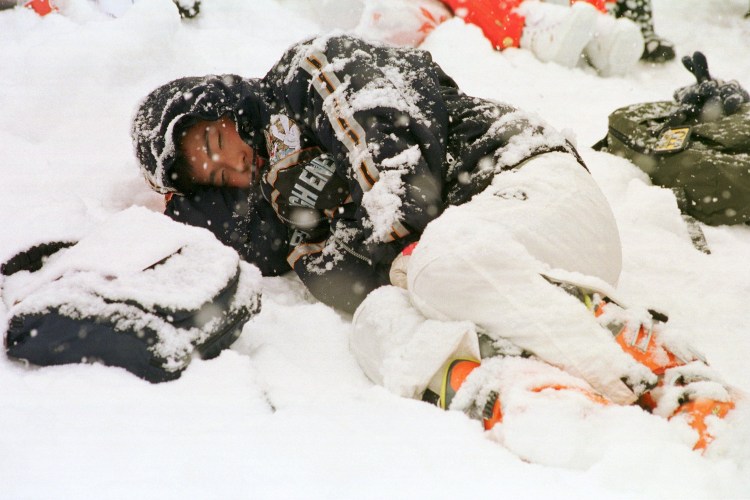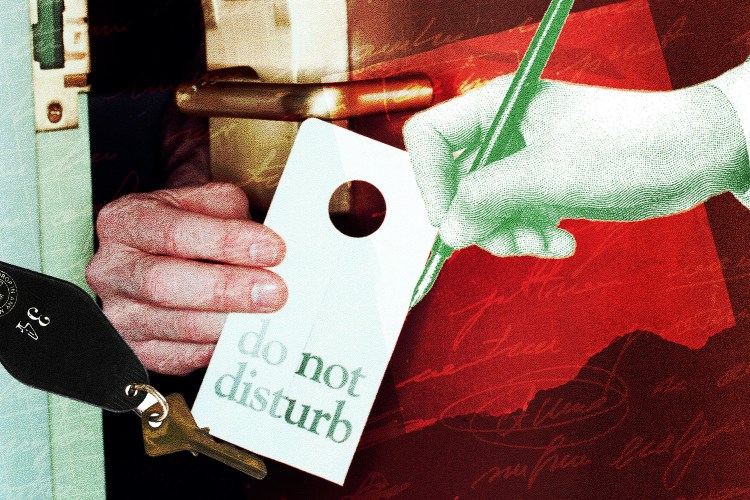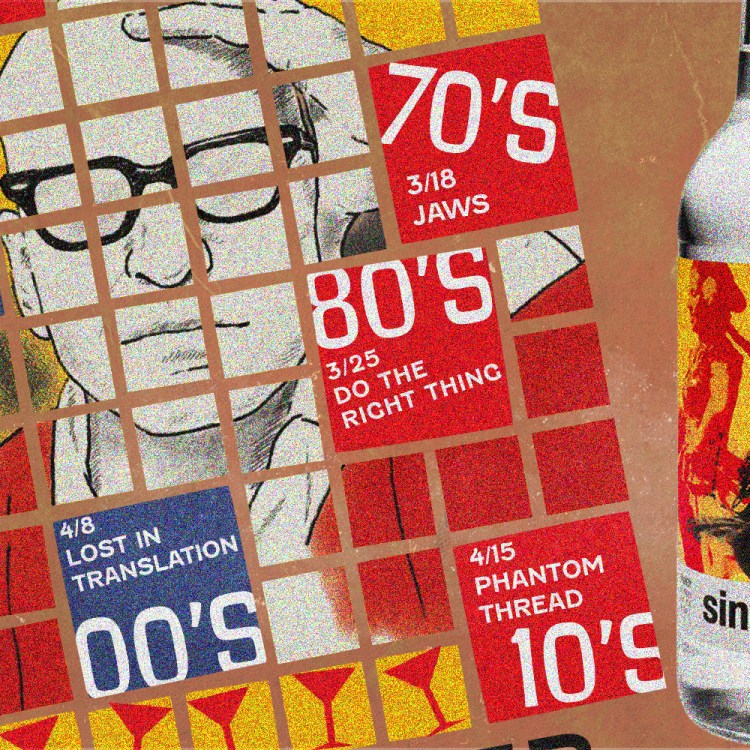New York Magazine‘s Vulture Festival has dominated the New York millennial pop cultural landscape for the last four years, and this weekend, it’s coming to Los Angeles. Catered to fans of Vulture.com, the entertainment section of the NY Mag brand, the two-day event features everything from a Crazy Ex-Girlfriend cast sing-a-long to a conversation between The Shape of Water director Guillermo del Toro and his frequent actor-collaborator Doug Jones; from a Search Party Scavenger Hunt and a Stranger Things panel to a tour of the Broad with art critic Jerry Saltz and a reading series hosted by Roxane Gay and Amber Tamblyn called “Feminist AF.” (Not to mention Natalie Portman, Lena Dunham, James Franco and David Lindelof appearances.) Both high and low, Vulture Festival delivers on the Brilliance spectrum from their well-known Pop Culture Approval Matrix.
RealClearLife spoke to festival organizer and Vulture editor Jesse David Fox about the decision to expand the event to Los Angeles, the importance of fandom, and why we’re never too old for Clone High.
RealClearLife: What prompted the Vulture Festival to move from New York to Los Angeles this year?
Jesse David Fox: We’re adding. We’ll still be doing a Vulture Festival in New York, but after four years in New York, we’re looking at this great thing we’ve created, and it’s a shame we’ve only done it in one city. After four years you realize “Oh, this would be so much easier if we didn’t have to fly in 100 people!”
That was a lot of it; the people we had to fly in and the people whose schedule we had to work around because if you’re in Los Angeles and we’re in New York, we’re essentially asking for your whole weekend. As opposed to doing the festival in LA, where we’re asking for maybe two hours on a weekend, tops.
It especially makes sense for certain types of talent. For me, it’s always movie directors. It’s sort of a small thing, but it felt like the type of people we wanted to be speaking to at a festival like this. People who like our site and our voice are interested in directors. But with directors, there are only three modes: they’re either working on a movie, promoting a movie or not.
By having the festival in LA, where they are, you can just say “Hey, can you come talk for an hour.” So we do have directors promoting their films, like Guillermo Del Toro (The Shape of Water) or James Franco (The Disaster Artist), but then we also have someone like Sofia Coppola. She’s kind of promoting The Beguiled, but also doing (the festival) because she thinks it would be interesting to talk to someone like Adam Moss.
The crazy example is Ava DuVernay (A Wrinkle in Time, Selma, The 13th) talking to Ryan Coogler (Blank Panther, Fruitvale Station, Creed). They’re both kind of promoting A Wrinkle in Time and Black Panther, but those movies don’t come out for months. We knew they were editing right next to each other at Disney, and we approached them with “Do you want to talk to each other in front of people?” They were the first people to say yes, they said it very quickly, and it was to the surprise of their publicists, who usually don’t want them doing anything outside their direct press cycle.
RCL: I’m very happy to see that you’ve stuck with the “sing-along” event you did two years ago with RENT, but are now having a “Crazy Ex-Girlfriend 100th Song Celebration Sing-a-Long.” How do you come up with these out-of-the-box festival ideas?
JDF: It’s just my personal belief that all theater should include music…even if they aren’t musicals.
No, it’s that the site has been around for almost 10 years, and it feels like there is a very specific type of person who reads it. And I was that person. I was a Vulture commenter before I was a contributor, then editor…now I’ve been here five years.
It’s a type of fandom that’s about what we—and our audience—engages with. I’ve had publicists reach out and say “I don’t know how you guys do it, but these are the people we want to put our talent in front of.” That’s the highest honor for us. And how that translates into the festival is that these names won’t be doing a discussion in front of 20,000 people; it’s going to be a few hundred. But it’s the people whose friends ask them for recommendations on what to watch. That’s the audience of our site, as well…those people.
RCL: I want to ask about the curation process: what does it entail? How do you decide— when all these publicists are coming up to you, and you have your own dream list of who you’d like to see—who makes the festival’s cut and who, unfortunately, doesn’t?
JDF: Essentially, we have a big meeting, where people bring in ideas for an event, or talent, or some combination of things. I prioritize all of that, our ideas, which we then send to publicists, to see if we can make it work. It’s really then about scheduling more than anything else.
Our ideas drive the festival: when it comes to things like reunions, we reach out to the creators first and see if they can help get the other talent. This year will bring back MTV’s Clone High, which is a really special show for me. So we knew if we reached out to creators by Phil Lord and Christopher Miller, they could help us. And they were very excited to do it.
RCL: Wait, Phil Lord and Christopher Miller created Clone High? The Lego Movie guys???
JDF: Yeah! They also voiced 1/3rd of the characters. So in that scenario, we knew this show was important to them, we knew they were in a weird position because they’d just been let go from this big, high-profile project and that they might want to do something back to their roots.
They told us “Oh, you know, we’re on a big text chain with everyone from that show, but it’d be nice to see each other and see who are fans are.” The show existed before there was press to cover it.
RCL: There are some events on this year’s lineup that seem very prescient, like Roxane Gay in conversation with Amber Tamblyn for Feminist AF: Tamblyn was an early part of this current conversation we’re having about Hollywood men when she spoke out against James Woods for trying to pick her up when she was 16.
JDF: With that, Tamblyn has been very involved with this poetry reading/event we put on in New York, because she had just written a poetry book. She curates the lineup, and she does it sometimes with Roxane. So it was very organic, they’ve worked with us, together, before.
When we’re coming up with what Vulture IS….well, it’s a web-only property. So how does that translate into something tangible for these events? With Amber and Roxane talking about these issues, it feels like the thing that Vulture would be covering. That’s a lot of what entertainment news is, what we ourselves are writing about, and it should be represented in the festival as much as sing-a-longs or game shows or anything a little bit sillier. The hope is that it has a range, and that range is something we try to capture every day.
RCL: If you were doing Vulture Festival as an elevator pitch, what would you say it is? Comic Con meets Now Hear This (the annual podcast festival)?
JDF: I’d say it’s what Comic Cons have become—these festivals of fandom, regardless of how quote-unquote ‘nerdy’ they are— meets The New Yorker Festival, in so much as it translates this journalistic entity into events. I think the difference is The New Yorker Festival is a collection of events around the city, that are really just curated by the company that does events for The New Yorker Festival. Ours is different in that it’s specifically the facilitation of connecting fans to talent. That’s what the ethos of all these festivals are, but it doesn’t end up being that direct of a connection because often you’re having a room of 20,000 people and you’re watching a panel. Whereas with Vulture Festival, we have small rooms on purpose, so it feels like everyone is sharing the same space.
I’ve done events where I integrate audience questions into the entire panel instead of at the end. I go “Well, this room is small enough, we all like the same show, so at any point, raise your hand, and I’ll call on you.”
For the show Playing House, which we did in New York, we did the panel as a pajama brunch; everyone was there in pajamas, eating pastries. I was asking the cast and crew questions and they’d go off, the audience would sometimes chime in, and at some point, what you’re having is a full conversation between multiple members of the audience and the talent. But just think: these audience members don’t know each other, they’re just in the same room….but that’s exactly what Vulture’s strength is. Both the talent we like and the fans that we have….they have some similarities we can connect. That’s what tremendously unique. Comic Con is not created by a board of people who have specific interests or a voice. It’s not created to be consumer-focused in that way.
RCL: That fits into a theory of fandom I’ve always held, which I call, depending on the day and who I’m speaking with, either The Purple Rose of Cairo Effect or the Last Action Hero Effect. The idea that there is a screen is malleable, that you could somehow go through it, or have your favorite characters come into your world through the screen. The screen as portal, let’s say. Because as a fan, you can go see all of the movies, but where is that connection…the sense that the people who created this world can also see you?
JDF: You asked a fairly heady question, so I’m going to give you a fairly heady answer. Art, as an entity, is an evolutionary byproduct of our desire to communicate. So the reason we have art is to better communicate feelings that the language that we have cannot convey. So when people create a movie or TV show, beyond the desire to entertain, I think they are really trying to say something. And the idea of our festival is to break that down a bit: we’ll put you in the same room as the people you want to say something to, and you can say it to them We’re saying: here is a roomful of people who appreciate your art enough that they bought tickets to see you, so we can strip away the artifice of “here’s a screen between you” and you can just say the words you wanted to say.
After Lena Dunham did that episode about Matthew Rhys’ character (a predatory older novelist), she could now be in this room at the festival with people like me who watched that episode and have a dialogue about what we both took from it.
My biggest hope, beyond people having a good time at the festival, is that the people attending are a group that hasn’t had the opportunity to meet each other. We’ll now be able to bring people from different neighborhoods together. If this was a festival just about promotion, we’d be doing way too much work for that.
With Vulture, we created something that had a voice about how culture was consumed, that did not really exist previously, and that people have responded to. And to that end, we created Vulture Festival to be an extension of what we do and what our fans do on the site.
Tickets for Vulture Fest—which runs Nov 18th & 19th— can be purchased here.
This article appeared in an InsideHook newsletter. Sign up for free to get more on travel, wellness, style, drinking, and culture.
